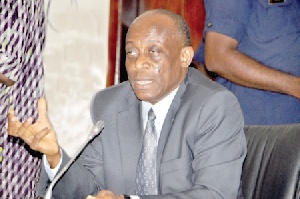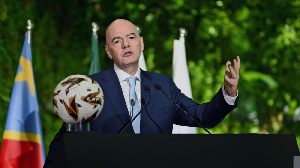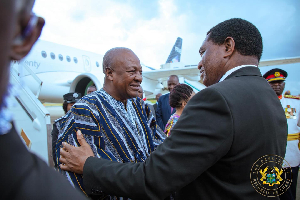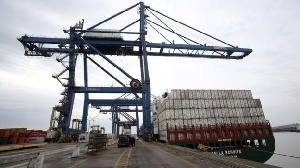Mr. Seth Terkper, Minister of Finance has said recent studies in Ghana continue to show that the borrowing capacity of Metropolitan, Municipal and District Assemblies (MMDAs) as measured by their annual operational savings is very low.
He said the report (source undisclosed) noted that only about 20 to 25 Assemblies would be in the position to borrow, but that not all could borrow every year.
“This is because the savings culture, which is a precondition for sustainable borrowing is lacking in the Assemblies,” he pointed out.
Mr. Terkper stated this in a speech read on his behalf by the Upper West Regional Minister, Alhaji Amidu Sulemana, during the 2016-2018 Regional Budget Hearings at Wechiau in the Wa West District.
“All over the world, local governments are increasingly accessing long-term borrowing to finance large capital investments,” he said.
The Finance Minister noted that, it was important for assemblies to improve on their public financial management and budgeting practices, in order to create the environment, which could support prudent and sustainable borrowing for public infrastructure and services at the local level.
Currently, the government is in the process of consulting relevant stakeholders to review the draft 2008 local government finance bill, to fashion out an appropriate framework, policies and procedures to empower assemblies to borrow for long-term investment projects, which could further support local economic and social development, he said.
Mr. Terkper said it was his conviction that the assemblies would take advantage of the ongoing Public Financial Management (PFM) reforms to improve their budgeting and financial management practices, to further improve local public services whilst generating the necessary conditions for enable demand-driven, accountable and sustainable borrowing.
Mr. Adamu Dasaana, the Wa West District Chief Executive (DCE) on his part, said the assembly had adopted a number of strategies among others in the preparation and implementation of the 2016 composite budget.
These include the institutionalization of measures to block leakages and loopholes in the revenue mobilization system, ensure effective monitoring of revenue collection and utilization of investment grants, and develop a reliable business and property database system including the street naming and property addressing system.
Other strategies include the promotion of local business enterprises based on resource endowments for job creation, address socio-cultural issues that limited women’s access to extension services and agricultural education, as well as deepening the integration and institutionalization of district level planning and budgeting through the participatory process at all levels among others.
Mr. Dasaana said the implementation of the 2015 composite budget was rightly on course as the assembly secretariat had taken some pragmatic measures to bridge the gaps between the estimated and the actual 2015 budget.
Mr. Inusah Shirazu, Senior Development Planning Officer at the Ministry of Local Government and Rural Development (MLGRD) explained that, the idea behind the introduction of the composite budget in 2012 was to solve challenges in the implementation of budgets.
He said it would ensure the harmonization of all budgets under the District Assembly and bring about the effective participation of the citizenry in the preparation of the budget.
Business News of Wednesday, 21 October 2015
Source: GNA
MMDAs lack borrowing capacity – Terkper
Opinions












